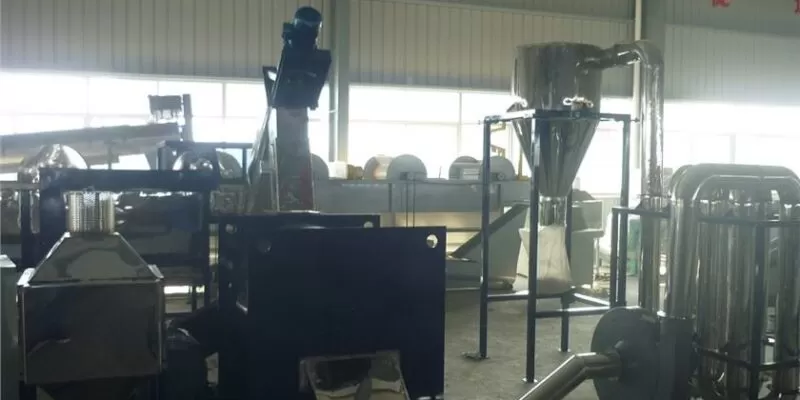Ever wondered what happens to all the plastic waste we produce every day? The problem is clear: plastic waste is piling up, it’s agitating our ecosystems, and it’s overwhelming our landfills. But there’s a solution that turns this waste into a valuable resource—plastic recycling.

Plastic recycling is a marvel of modern engineering. It transforms mountains of plastic waste into reusable materials. This process plays a crucial role in reducing pollution, conserving resources, and protecting the environment. Now, let’s dive deeper into how plastic recycling works and why it’s so important.
What is Plastic Recycling?
Plastic recycling is the process of converting waste plastic into new, usable products. This involves collecting, sorting, cleaning, shredding, and remanufacturing. By recycling, we not only reduce the burden on landfills but also conserve natural resources. The essence of plastic recycling is to turn non-biodegradable waste into reusable materials.
How Does the Recycling Process Work?
The first step in plastic recycling is collection. Various types of plastic waste are collected and transported to recycling centers. There, the waste is sorted by type and color. Next comes cleaning, where contaminants are removed. The plastic is then shredded into small pieces and further processed into pellets. These pellets can be used to manufacture new products, completing the recycling loop.
Why is Plastic Recycling So Important?
The importance of plastic recycling cannot be overstated. First, it reduces environmental pollution. Plastic takes hundreds of years to decompose in nature, but recycling can significantly shorten this process. Second, recycling reduces the demand for raw materials, preserving natural resources. Third, it saves energy. Producing new plastic requires much more energy than recycling old plastic.
Environmental Benefits of Plastic Recycling
Plastic recycling has multiple positive impacts on the environment. First, it reduces greenhouse gas emissions. Producing new plastic emits a significant amount of CO2, whereas recycling plastic greatly reduces this emission. Second, recycling reduces plastic pollution, protecting marine life and ecosystems. Finally, by alleviating the burden on landfills, recycling improves land use efficiency.
Economic Benefits of Plastic Recycling
In addition to environmental benefits, plastic recycling brings significant economic benefits. By recycling, we can reduce reliance on imported raw materials, enhancing economic independence. Additionally, the recycling industry creates numerous jobs, from waste collection to processing and sales. Recycled plastic also lowers manufacturing costs, boosting the competitiveness of businesses.
Technological Advancements in Plastic Recycling
With the advancement of technology, plastic recycling techniques are continually improving. Modern recycling equipment is more efficient and can handle a wider variety of plastic waste. New technologies like chemical recycling and pyrolysis can convert difficult-to-recycle plastics into high-value products. These advancements not only increase recycling rates but also expand the range of recyclable plastics.
How Can You Participate in Plastic Recycling?
As individuals, we can play a vital role in plastic recycling. First, reduce plastic usage by opting for reusable products. Second, properly sort and dispose of plastic waste to ensure it reaches recycling centers. Finally, support companies that use recycled plastic products, driving market demand for recycled goods.
The Future of Plastic Recycling
The future of plastic recycling is promising. With growing environmental awareness, more countries and regions are implementing strict recycling regulations and policies. These measures will further drive the development of plastic recycling, reduce environmental pollution, and achieve sustainable development. We have every reason to believe that through collective effort, plastic recycling will create a brighter future for our planet.
Conclusion
Plastic recycling is crucial for environmental protection. It not only reduces pollution and conserves resources but also brings significant economic and social benefits. By actively participating in and supporting plastic recycling, we can all contribute to protecting the Earth. Let’s start today, prioritize plastic recycling, and create a greener, healthier planet for future generations.
That’s all for now. Stay eco-friendly, work together, and let’s make our Earth a better place. Keep up the good work!
